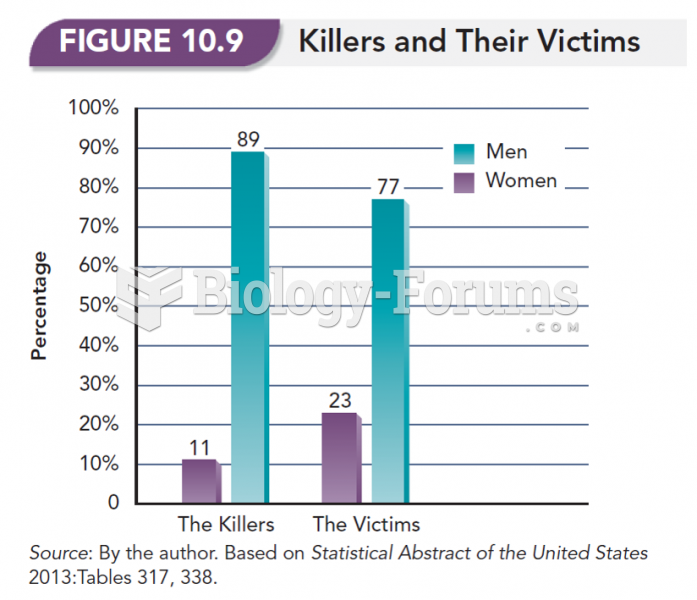|
|
|
Serum cholesterol testing in adults is recommended every 1 to 5 years. People with diabetes and a family history of high cholesterol should be tested even more frequently.
Addicts to opiates often avoid treatment because they are afraid of withdrawal. Though unpleasant, with proper management, withdrawal is rarely fatal and passes relatively quickly.
Atropine was named after the Greek goddess Atropos, the oldest and ugliest of the three sisters known as the Fates, who controlled the destiny of men.
Chronic marijuana use can damage the white blood cells and reduce the immune system's ability to respond to disease by as much as 40%. Without a strong immune system, the body is vulnerable to all kinds of degenerative and infectious diseases.
In ancient Rome, many of the richer people in the population had lead-induced gout. The reason for this is unclear. Lead poisoning has also been linked to madness.
 Two ginkgo biloba labels, note the lack of standardization in (a) 60 mg of extract, 24% ginkgo flavo
Two ginkgo biloba labels, note the lack of standardization in (a) 60 mg of extract, 24% ginkgo flavo
 Pulmonary embolism. The purple shaded section shows the area of the lung that is dying from lack of ...
Pulmonary embolism. The purple shaded section shows the area of the lung that is dying from lack of ...





